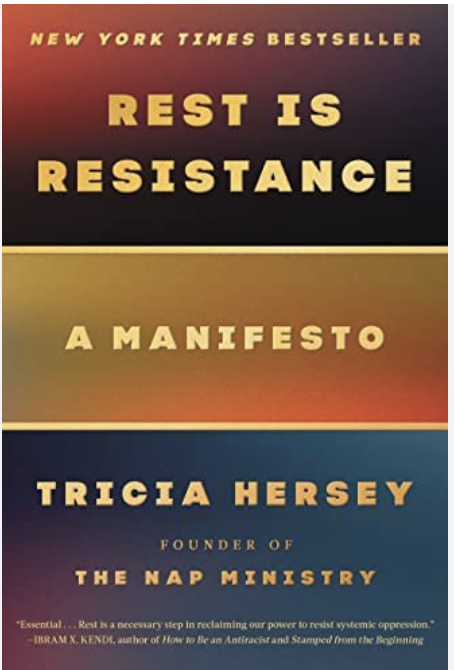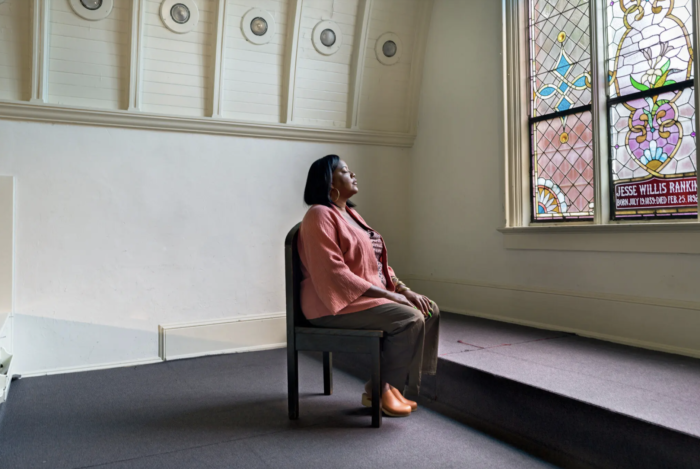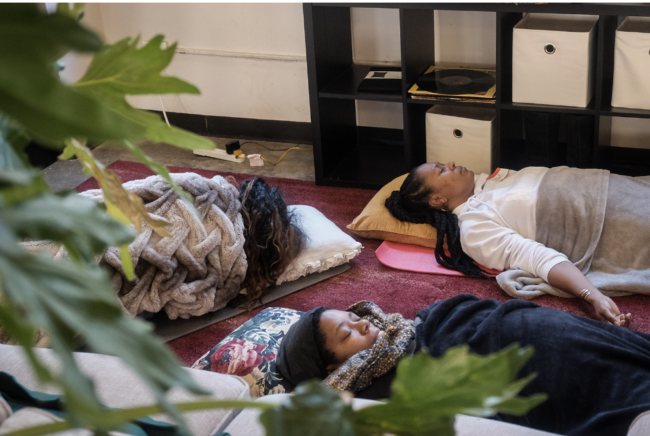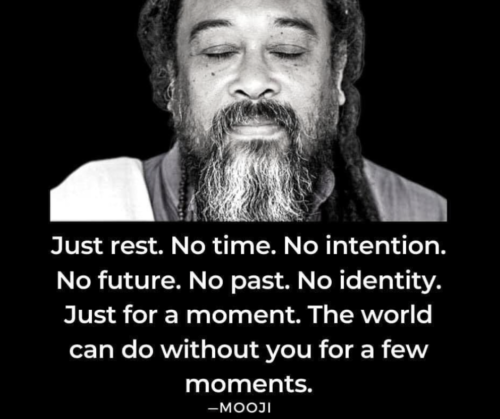Tricia Hersey, author of Rest is Resistance, makes the bold claim, “Rest saved my life.”
Hersey’s book was a Christmas present from my younger brother. We come from a family of workaholics, where our father labored in his office for long hours, while our mother exhausted herself with her endless household chores. We were taught that hard work was the key to a successful life.
My white middle-class family was privileged in comparison, to Hersey’s growing up Black, where her parents worked around the clock to pay the bills, leaving her with “a legacy of exhaustion” – a legacy most of us share regardless of our backgrounds.
As a grad student Hersey was constantly bone tired, spending hours commuting, attending classes, caring for a young child, and getting up before the sun to study. One day, while studying, she fell asleep and woke up refreshed. This produced an epiphany where she decided, no matter how demanding her schedule, she was going to incorporate rest. Once she added rest to her lifestyle, her grades improved, and she was happier.
Hersey blames our “grind culture” for keeping us locked into fatigue. Hersey looked to her slave ancestors to understand her legacy of exhaustion. Male slaves worked around the clock, eating their meals standing up in the cotton fields. Pregnant slave women were given no special consideration, frequently delivering their babies while picking crops.
Hersey writes that we have been conditioned to regard our sleep deprived state as a virtue because it leaves little time to question how our Capitalistic system enslaves us. When we take a break and rest, we are resisting our exploitation. We have the time to reflect and imagine a more satisfying lifestyle, while honoring our bodies. She insists that no matter how demanding your lifestyle there is always time for rest, if only a 15-minute nap or meditating during a commute to work.
Wanting to share her new vision, Hersey created the Nap Ministry, where participants rest together in a large communal space, often a church, equipped with pillows, blankets, and yoga mats. Hersey opens the nap sessions with a meditative reading. She encourages participants to treat their naps as a dream space, a time to let their imaginations flourish. She regards rest as soul care, or a love practice.
When we rest and dream, we are deprograming from the grind culture. Hersey stresses rest is not limited to naps. Rest includes meditation, where we quiet our minds, and come alive, countering the numbing produced by exhaustion. Time in nature, journaling and daydreaming are forms of rest.
A rest practice demands weekly time unplugged from our electronic gadgets. Stepping away from our phones and laptops allows us to charge our brains and engage with community in real time. Hersey connects rest to social justice work. Making time for rest allows for time to engage in cooperative actions to tackle mounting issues like global warming and social inequalities.
Hersey’s emphasis on the healing powers of rest is documented in interviews with individuals who make up “The Great Resignation,” the Covid inspired movement, where record numbers of men and women quit their jobs to exit the rat race and spend more time with their families. Most of these individuals report they ae happier despite having less money to spend.

Ana del Rocío, a single mother who left her job in the nonprofit sector at the end of 2021, with her children, Inti and Tupac. (The New York Times)
Even in her 80’s, my mother prided herself on not taking naps. She regarded naps as a waste of time when she could be doing something more productive. Hersey counters that rest is not a waste of time but a generative space, stressing that exhaustion is not normal.
Sorry Mom, but I’m tired and feel a nap coming on. I need recharging. Thank you, Tricia Hersey, for awakening me to sleep as a portal to nurturing my soul.





